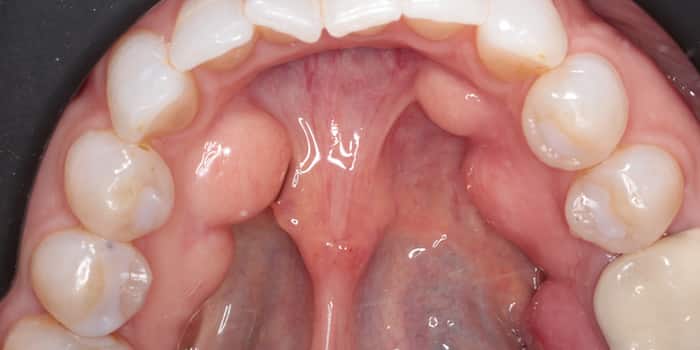Laser Tori Removal Dentist
Last updated Wednesday, October 5th, 2022

Mandibular Tori Expert Treatment and Removal
If you have dental tori and are looking for a laser tori removal dentist, you’ve come to the right place! The dental tori are small, hard structures in your mouth that impede the fixing of dentures in the mouth. They have a bony appearance.
There are several ways by which dental tori can be removed. Traditionally, it is done surgically with the use of drills and chisels. However, with the advancement in technology, the removal of dental tori has become much easier and less painful. Before we go into the laser means of tori removal, we will first examine the dental tori in detail.
About the dental torus
A dental torus is defined simply as an overgrowth of bone in the mouth. A torus can be triggered by factors such as genetics, an uneven bite, or even teeth grinding. When there are multiple overgrowths of bone in the mouth, then they are collectively known as dental tori.
Dental tori do not cause any harm. They grow on the part of your mouth known as the torus palatinus. The torus palatinus is also known as the roof of the mouth. In some cases, the dental torus can occur along the torus mandibularis – the lower jaw line.
In most cases, it is unnecessary to remove the dental torus. However, your dentist may recommend surgery. Reasons for removal of a tori include the following:
- Pain and discomfort
- Discomfort when eating (the tori causes some irritation in the mouth)
- Difficulty in speaking
- Interference with implants and dentures
Also, a mandibular tori (the one on the torus mandibularis) may be removed for the following reasons:
- Getting the mouth ready for prosthetic implants
- If you have done extensive mandibular surgery at some point in your life
- When there is a case of severe pain due to gingival inflammation
- Cancer phobia
Ordinarily, as has already been said, mandibular torus does not require treatment. Surgery only becomes necessary when the bone overgrows and interferes with speech, eating, dental prosthesis or other oral functions.
What happens during removal of the mandibular tori?
You will require the services of a highly trained dentist if you wish to remove the dental tori. You should consider removal tori adversely affect oral function and your daily life. No doubt, this was a painful, intimidating and even frightening experience for patients. However, with advancements in technology, removal of the tori has become more efficient and the process is much easier. Today, laser tori removal is faster and is virtually pain-free.
Removal of the tori by laser surgery
There is a growing interest in alternative means of carrying out oral surgeries. Not many reports exist on the use of lasers in bone surgery. Research is ongoing to demonstrate the efficacy of laser surgery in dental procedures.
Removal of the tori by laser surgery has a lot of advantages. First of all, the cut made is accurate. And there is the absence of hand pressure and vibration using use. Medically it bestows some important benefits such as a lesser risk of bacterial infection in the surgical area.
Nerve supply the teeth. When operating on the tori using the traditional means, the surgeon may damage the nerves by mistake. Also, the excess blood may block the field of vision, causing a puncture to the nerves or other vital tissues. This risk is absent when using laser surgery. The incision is more precise with less blood loss. Also, patients tend to accept the laser means of removing the dental tori rather than the traditional means. This is not surprising as the laser means has more advantages than the traditional mode.
How long does it take to recover after removal of the dental tori?
It takes about three to four weeks to recover from the surgery. Some side effects that accompany the surgery include bleeding, swelling and slight pain.
Any complications associated with laser tori removal?
One of the few side effects includes bleeding and slight swelling in the mouth. There are chances of getting an infection since it is a dental procedure. Your dentist will advise you on what to do to prevent this.
Get Started On Your New Smile
It's time you stop putting off your next dental visit. Whether it's a general check-up or a complex restorative or cosmetic procedure, the time to book your appointment is now!

